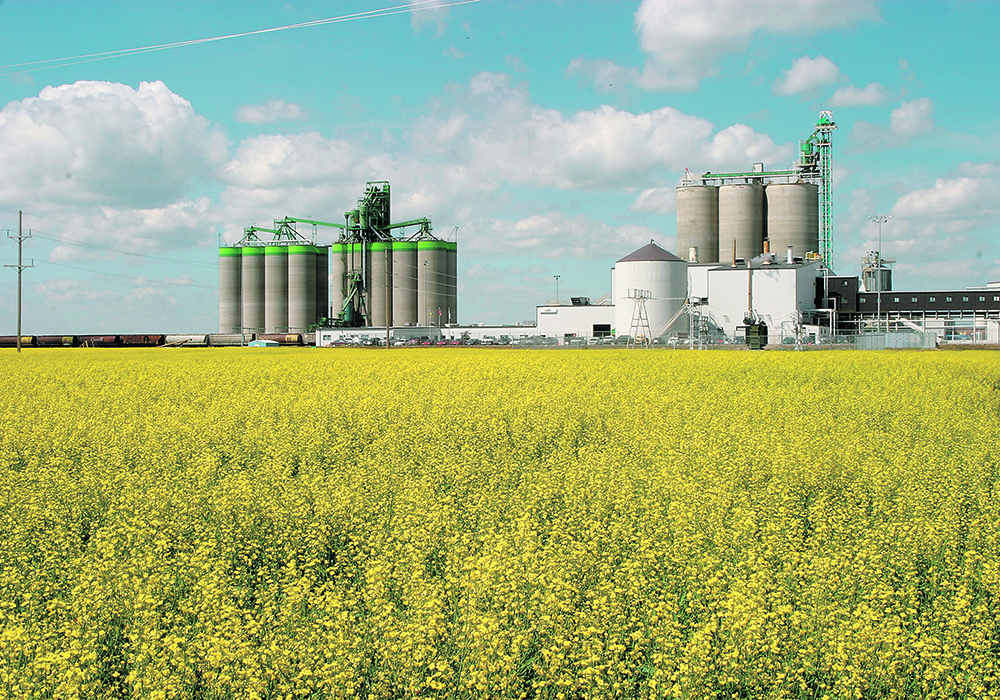Cargill Canada is selling its high oleic canola seed breeding business to Corteva Agrisciences, the companies confirmed last week.
The deal, which was expected to close on Oct. 31, will not affect Cargill’s high oleic canola contracting program in Western Canada.
Cargill will also continue to process canola oil at oilseed crushing plants in Saskatchewan and Alberta.
However, the deal will result in the closure of a Cargill research and seed production facility located at Aberdeen, Sask.
Financial terms of the deal were not disclosed.
Read Also

Using artificial intelligence in agriculture starts with the right data
Good data is critical as the agriculture sector increasingly adopts new AI technology to drive efficiency, sustainability and trust across all levels of the value chain.
“We will continue to offer the same Victory high oleic canola program, while continuing our same canola contracting program in Western Canada” Cargill’s Chantelle Donahue said in an email.
“We are working closely with our employees through this transition, including, where possible, providing employment opportunities. Cargill remains committed to the canola industry in Saskatchewan and across Western Canada.”
Cargill opened its Aberdeen research and production centre about 14 years ago.
The facility supported the testing, commercialization and multiplication of new canola varieties for the company’s specialty oil program in Western Canada.
Under the deal, Corteva will acquire all intellectual property associated with Cargill’s canola breeding program, including experimental canola lines currently under development, genetic markers and traits.
The deal does not include physical assets at Aberdeen, such as buildings and machinery.
Cargill opened its Aberdeen research centre in 2008.
The facility was a hub of the company’s western Canadian canola variety testing program, which assessed promising new high oleic canola lines under western Canadian field conditions.
New lines of specialty canola developed at Cargill’s breeding facility in Fort Collins, Colorado, were shipped to Saskatchewan and field tested at Aberdeen prior to commercialization and multiplication.
Experimental lines were assessed for agronomic performance, yield, disease resistance and other characteristics before being registered for commercial sale, multiplied and distributed to Cargill’s contract growers throughout the province.
In 2016, Cargill spent $3.5 million to expand its Aberdeen location.
The expansion included the addition of 14,000 sq. feet of working space, a larger canola pathology laboratory, a state-of-the art quality assurance lab, expanded office space and facility improvements to accommodate a growing workforce.
At the time, the facility employed about 40 people, including researchers, pathologists, agronomists and support staff.
Corteva is a global leader in the development of crop protection products, genetic traits and oilseed varieties aimed at commodity and high stability oil markets.
Oilseed varieties developed by the company are sold under the Pioneer and Brevant trade names.
Tyler Groeneveld, Corteva’s director of grains and oils for North America, said Corteva will acquire seed and germplasm assets that were used by Cargill to develop its Victory canola program.
“The acquisition of Cargill’s canola breeding program (includes) their germplasm assets, including traits and markers in their discovery pipeline.”
Corteva will continue to develop and supply new canola varieties for use in Cargill’s Victory canola program, he added.
“We’re both very committed to providing high stability canola to the North American food industry and to key export markets so the alignment of both companies with very similar outlooks … made this acquisition a very strong partnership that we look forward to cultivating into the future.”
Cargill operates two specialty oil canola crushing facilities in Western Canada — one at Clavet, Sask., and one at Camrose, Alta.
The company is also building a new million-tonne-per-year canola crushing plant near Regina.
The Regina facility, scheduled to be operational in 2024, will push Cargill’s annual crush capacity in Saskatchewan to 2.5 million tonnes.
Nearly 50 percent of the canola produced in Canada each year is harvested in Saskatchewan.
According to SaskCanola, farmers in the province have produced an average of roughly 11 million tonnes of per year over the last five years.
















